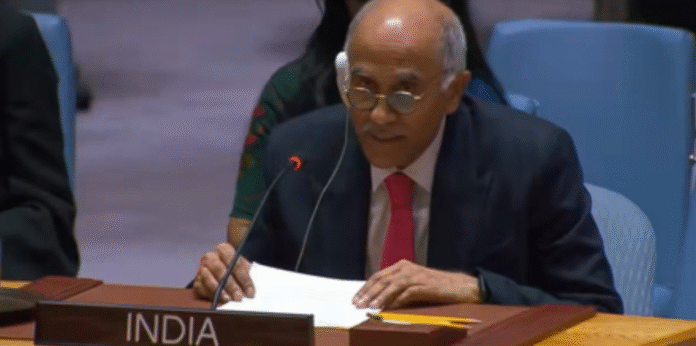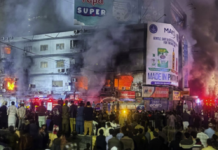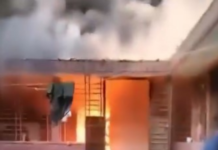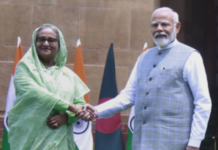UNITED NATIONS — India has urged the UN Security Council to reinforce a zero-tolerance stance on terrorism and those who support it, highlighting Pakistan’s role in supplying weapons to terrorist groups across the border, including through the use of drones.
“India has suffered due to cross-border terrorism carried out using illicit weapons trafficked across our borders, including now through the use of drones,” India’s Permanent Representative to the UN, P. Harish, said on Monday during a Security Council Open Debate on small arms.
Harish did not explicitly name Pakistan, but his remarks clearly pointed to the neighboring country. He said the growing sophistication of weapons used by these groups demonstrated that such organizations “cannot sustain themselves without being enabled, financed or supported.”
“The Security Council must continue to uphold a zero-tolerance approach to terrorism in all its forms and manifestations and to those who facilitate, sponsor, finance or enable the use and movement of such weapons,” Harish stated.
He added that India’s decades-long struggle against terrorism has shown the severe risks posed by the diversion and illegal transfer of small arms and ammunition to armed non-state actors.
The meeting was chaired by Sierra Leone’s Foreign Minister, Alhaji Musa Timothy Kabba, who called for consistently enforced arms embargoes to curb the spread of small weapons. He noted that an estimated 850 million small arms are in circulation worldwide, including about 650 million in civilian hands, and described the trade as one of the least transparent segments of the global arms market.
Kabba stressed the need to prevent terrorists from acquiring weapons and highlighted emerging concerns, such as the production of firearms using 3D-printing technology.
In a report presented to the Council, UN Secretary-General Antonio Guterres warned that terrorist organizations are increasingly developing small arms and components using digital design files and 3D printing equipment. He urged member states to adopt national legislation regulating digital blueprints and the electronic distribution of weapon construction data. (Source: IANS)














